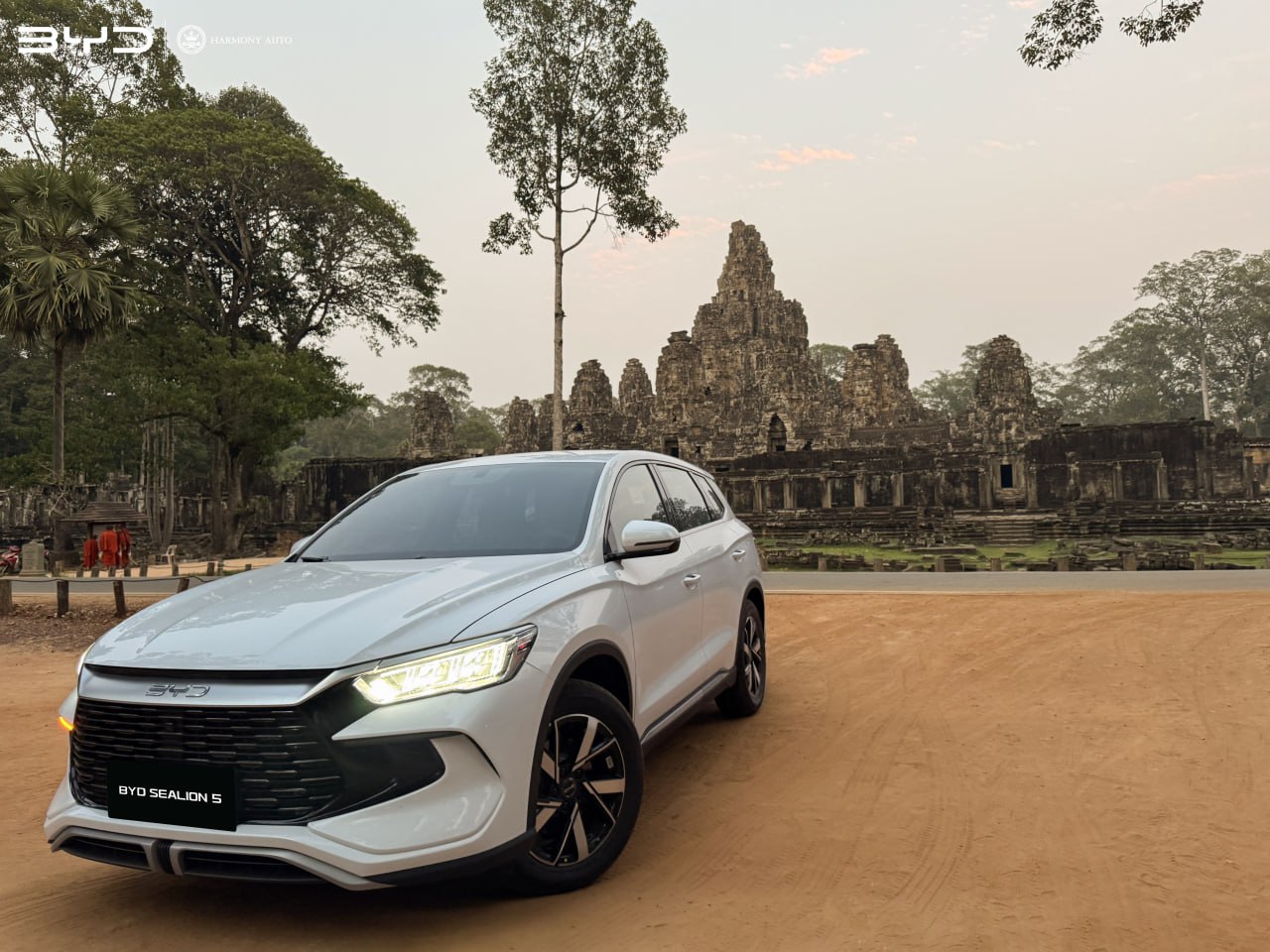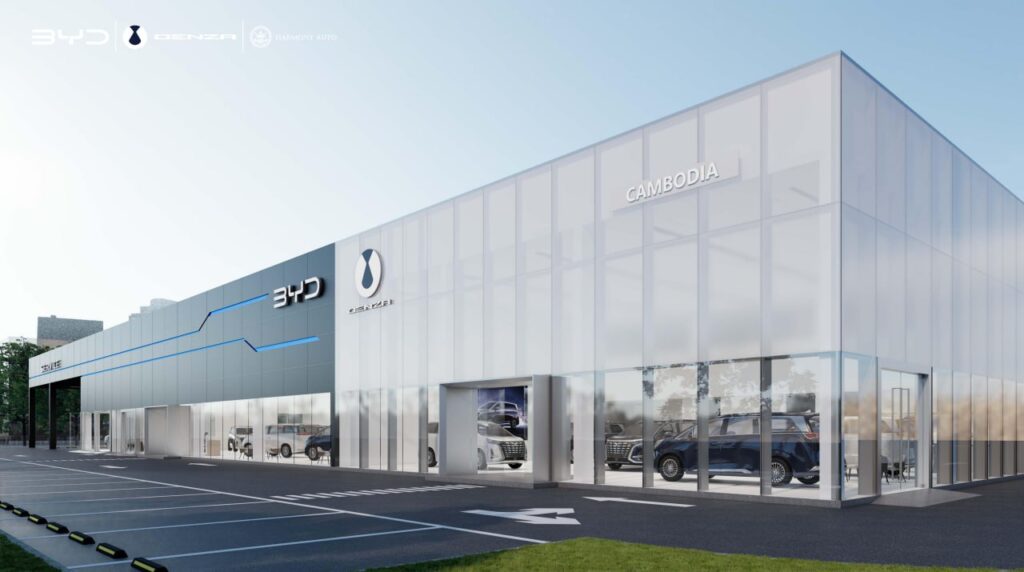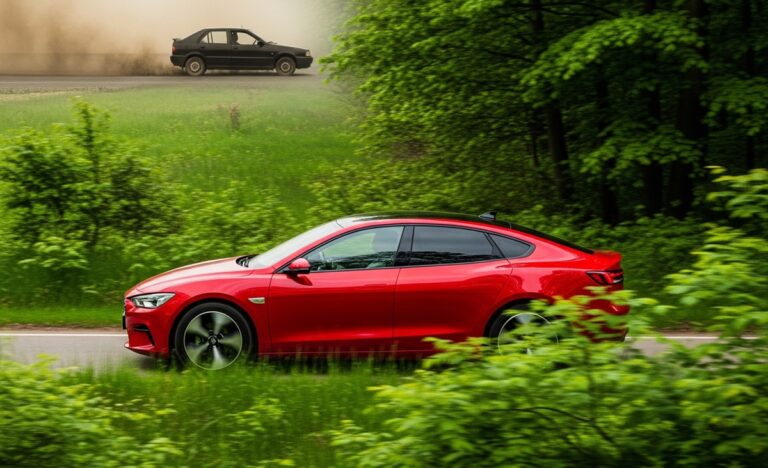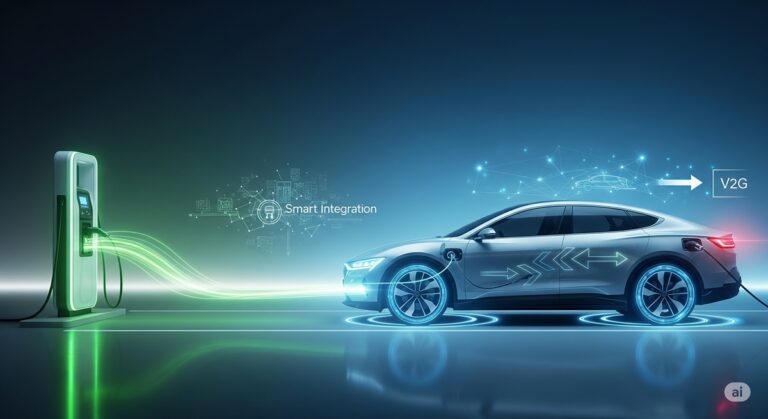BYD in Cambodia: Exploring the Latest Electric Vehicles from the Global Leader

The roar of internal combustion engines is steadily giving way to the hum of electric motors across the globe. As nations commit to greener futures, electric vehicles (EVs) are no longer a distant dream but a tangible reality, rapidly reshaping urban landscapes and transport habits. In Southeast Asia, a vibrant new market is emerging, and Cambodia is quickly accelerating into this electrifying future. At the forefront of this transformation stands BYD, the Chinese automotive giant, which has swiftly transitioned from a battery innovator to a global leader in electric vehicles.
This article delves into BYD’s strategic journey in Cambodia, exploring how this powerhouse brand is not only introducing cutting-edge BYD electric car models but also investing significantly in local infrastructure and production. We’ll examine their impressive market performance, highlight the benefits for Cambodian consumers, and cast an eye on the exciting future that BYD is helping to build for sustainable mobility in Cambodia. Join us as we explore the dynamic impact of BYD on the kingdom’s rapidly evolving EV landscape.
- From Global Powerhouse to Cambodian Market Leader: BYD’s Strategic Entry
- Driving the Charge: Popular BYD EV Models in Cambodia
- Powering Ahead: BYD’s Market Dominance and Local Production
- Beyond the Vehicle: Charging Infrastructure and Government Support
- The Road Ahead: Future Prospects and Challenges for BYD in Cambodia
- Conclusion: Steering Cambodia Towards an Electric Future
- FAQs (Frequently Asked Questions)
- 1. When did BYD officially launch in Cambodia?
- 2. What are the most popular BYD electric car models available in Cambodia?
- 3. Where is the BYD factory located in Cambodia, and when will it start production?
- 4. How much does a BYD Atto 3 cost in Cambodia?
- 5. Are there enough charging stations for BYD EVs in Cambodia?
- 6. What incentives does the Cambodian government offer for buying an EV like a BYD?
From Global Powerhouse to Cambodian Market Leader: BYD’s Strategic Entry
BYD, or “Build Your Dreams,” has indeed built a formidable dream for itself on the global automotive stage. Once primarily known for its advanced battery technology, BYD has aggressively pivoted to become a full-spectrum electric vehicle manufacturer, surpassing traditional giants and even Tesla in battery electric vehicle (BEV) sales in 2023. This rapid ascent is a testament to its innovation, vertical integration, and aggressive global expansion strategy.
In Cambodia, BYD’s strategic entry began officially in 2020, marking a pivotal moment for the nation’s nascent EV sector. Recognizing Cambodia’s burgeoning economy and the government’s growing commitment to green initiatives, BYD established its presence with early sales centers. Today, a network of authorized distributors, including key players like Prime Auto, EV Power, Essential Motors, and KHIEV AUTO CO., LTD., ensures wider accessibility for prospective BYD Cambodia customers.
Looking ahead, BYD is not merely content with sales. The company has ambitious plans to expand its physical footprint across the kingdom, aiming to establish 10 brand dealerships by the end of 2025. A highlight of this expansion is the development of a flagship store on Phnom Penh’s prominent Hun Sen Boulevard, poised to become one of the largest auto dealerships in Cambodia. This significant investment underscores BYD’s long-term commitment and strategic vision for capturing a substantial share of the Cambodian EV market.
Driving the Charge: Popular BYD EV Models in Cambodia
BYD’s success in Cambodia is largely driven by its diverse and compelling lineup of electric vehicles, designed to cater to various consumer needs and preferences. The brand’s commitment to affordability, advanced technology (especially the Blade Battery), and practical range has resonated strongly with Cambodian drivers.
Here are some of the popular BYD electric car models in Cambodia making significant waves:
- BYD Atto 3 (Known as Yuan Plus in China): Launched in Cambodia in August 2022, the Atto 3 quickly became a flagship model. This stylish compact SUV is praised for its modern design, spacious interior, and impressive technology features. It comes equipped with BYD’s renowned Blade Battery, offering both a 50 kWh and a 60 kWh option, translating to ranges of approximately 410 km and 480 km (CLTC), respectively. As of July 2025, the BYD Atto 3 Cambodia price ranges from approximately $30,600 for the Dynamic trim to $35,600 for the Premium trim.
- BYD Dolphin: A nimble and charming compact car, the Dolphin is perfectly suited for urban driving in Phnom Penh and other major cities. Its compact size belies a surprisingly spacious interior, making it an ideal choice for daily commutes and ride-hailing services. The Dolphin, with its efficient Blade Battery, offers a practical range (e.g., 420 km for some variants) and competitive pricing, with new models starting around $24,800. Used models can be found for as low as $15,800, making it a highly accessible entry point into the EV market.
- BYD Seagull: Positioned as an even more affordable and accessible option, the BYD Seagull is a 5-door, 4-seater electric hatchback. It features Blade Battery options (30.08 kWh and 38.88 kWh) providing a range of up to 405 km (CLTC). The BYD Seagull Cambodia price hovers around $17,800-$19,300 for the 2025 models, making electric vehicle ownership attainable for a broader segment of the population.
- Other Noteworthy Models: While the Atto 3, Dolphin, and Seagull lead the charge, BYD’s broader international lineup also sees select availability of more premium or specialized vehicles in Cambodia. These include luxurious sedans like the BYD Seal and Han EV, the versatile Tang EV SUV, the recently introduced BYD Sealion 6 (with prices seen from ~$44,400), the BYD ALL-NEW e2 2024 (~$24,800), and even the robust BYD Shark 6 pickup truck (~$56,800). BYD’s premium brand, DENZA, also offers models like the DENZA EV 600 (priced around $91,800), catering to the luxury segment.
A core advantage across the BYD lineup is the Blade Battery technology. This innovative lithium iron phosphate (LFP) battery is renowned for its enhanced safety, longer lifespan, and superior energy density, providing peace of mind and efficient performance for drivers in Cambodia.
Powering Ahead: BYD’s Market Dominance and Local Production
BYD’s entry into Cambodia has been nothing short of a market disruption, quickly establishing the brand as the undisputed leader in the local EV sector. Their sales figures speak volumes about their success and consumer confidence.
- Unrivaled Market Share: BYD has seized an early lead and now dominates Cambodia’s developing EV market. In the first half of 2024, BYD sold an impressive 658 cars, capturing more than 40% of the total 1,614 electric cars sold in Cambodia during that period. This places them significantly ahead of other notable brands like Toyota (261 EVs) and Tesla (186 EVs) in EV sales. The momentum continues, with BYD recording a remarkable 521% year-on-year increase in orders in Q1 2025. Their popularity was further cemented at the Phnom Penh White Palace Auto Show in March 2025, where BYD accounted for 24% of total orders, topping all other automotive brands.
- Local Assembly Plant—A Game Changer: Beyond sales, BYD is making a tangible, long-term commitment to Cambodia’s industrial development. In a landmark move, BYD officially broke ground on its $32 million (Phase 1) passenger vehicle assembly plant in the Sihanoukville Special Economic Zone in April 2025. This sprawling 12-hectare facility is set to be a transformative force for the Cambodian economy. It is projected to have an initial annual production capacity of 10,000 vehicles, primarily assembling pure electric vehicles (EVs) and plug-in hybrid electric vehicles (PHEVs) from Completely Knocked Down (CKD) kits. Crucially, the plant is scheduled for completion in October 2025, with manufacturing operations expected to commence in early November 2025. This investment marks BYD’s second production base in Southeast Asia after Thailand, underscoring Cambodia’s growing importance in the regional EV supply chain.
This local production facility is not just about manufacturing; it symbolizes BYD’s commitment to driving economic diversification, creating jobs, and fostering technical expertise within Cambodia, directly aligning with the nation’s industrialization goals.
Beyond the Vehicle: Charging Infrastructure and Government Support
The widespread adoption of electric vehicles hinges not only on compelling models but also on a robust supporting ecosystem, particularly EV charging stations. BYD is actively contributing to this vital infrastructure development in Cambodia.
- Expanding Charging Network: Recognizing the critical need for accessible charging, BYD aims to install 200 electric vehicle charging stations across various key regions in Cambodia. This initiative will significantly bolster the national charging network, which, as of May 2025, comprised 21 EV charging stations across the country. To further ease the transition for new EV owners, BYD is also providing practical solutions like free home charging portals with the purchase of specific vehicles, such as the BYD Dolphin.
- Government’s Vision & Incentives: BYD’s ambitious plans are greatly supported by the Cambodian government’s forward-thinking policies. Cambodia has enacted an ambitious National Policy on Electric Vehicle Development, with clear targets: 30,000 EVs on the road by 2030 and an aspirational goal for 40% of all cars and urban buses to be electric by 2050. To accelerate this transition, the government provides significant EV incentives in Cambodia, notably a 50% reduction in import duties on electric vehicles compared to conventional internal combustion engine vehicles, a policy that has been in effect since 2021. This favorable tax environment directly lowers the BYD Cambodia price, making their vehicles more competitive and attractive to consumers. The Cambodian government views BYD’s investment in local assembly and charging infrastructure as a crucial pillar in achieving its national EV targets and promoting a greener, low-carbon economic transformation.
- Consumer Confidence: The combination of competitive pricing, robust models, expanding charging options, and clear government support has fostered growing consumer confidence. Cambodian drivers are increasingly recognizing the long-term cost savings (reduced fuel expenses, lower maintenance) and environmental benefits (reduced air pollution, quieter rides) of owning an EV, further fueling the demand for brands like BYD.
The Road Ahead: Future Prospects and Challenges for BYD in Cambodia
The trajectory for BYD in Cambodia appears set for continued growth, solidifying its position as a transformative force in the nation’s transport sector.
- Continued Expansion: With the Sihanoukville assembly plant commencing production in early November 2025, BYD is poised to meet surging local demand more efficiently and potentially explore export opportunities within the region. The expanding dealership network will ensure greater market penetration and after-sales support.
- Diversification into Commercial EVs: While passenger cars lead, there’s immense potential for BYD to further penetrate Cambodia’s commercial EV sector, introducing more electric buses, vans, and trucks for public transport, logistics, and tourism, aligning with the country’s sustainable development goals.
- Addressing Challenges: Despite the positive outlook, the journey isn’t without its challenges. Continued robust expansion of EV charging infrastructure Cambodia-wide, especially outside major urban centers, remains critical for long-distance travel confidence. Ensuring a skilled workforce for EV maintenance and repair, along with effective battery recycling programs, will also be vital for long-term sustainability. Competition from other global and regional EV players entering the market will intensify, requiring BYD to continuously innovate and adapt.
Nevertheless, BYD’s proactive approach, backed by strong government support and a rapidly growing market, positions it as a key driver for Cambodia’s transition towards a truly sustainable and electric future.
Conclusion: Steering Cambodia Towards an Electric Future
BYD’s strategic entry and rapid growth in Cambodia mark a pivotal moment in the nation’s journey towards sustainable development. From introducing a diverse range of affordable and high-quality BYD electric car models to investing in a pioneering local assembly plant and expanding the charging network, BYD is fundamentally reshaping Cambodia’s automotive landscape.
Their commitment is not merely transactional; it’s a deep-rooted partnership aimed at driving economic growth, fostering environmental sustainability, and providing Cambodian consumers with access to the cutting edge of electric vehicle technology. As the Sihanoukville factory gears up for production and more charging points emerge, BYD is not just selling cars; it’s helping to build the very infrastructure for a cleaner, greener, and more efficient Cambodia. The green wave has indeed rolled in, and BYD is firmly at the helm, steering Cambodia towards an electric future.
What BYD model excites you most for Cambodia’s roads? Have you experienced BYD’s EVs or charging infrastructure in Cambodia? Share your thoughts and questions in the comments below!
FAQs (Frequently Asked Questions)
1. When did BYD officially launch in Cambodia?
BYD officially entered the Cambodian market in 2020, establishing its first passenger car sales center in Phnom Penh.
2. What are the most popular BYD electric car models available in Cambodia?
The most popular BYD electric car models currently dominating the Cambodian market include the BYD Atto 3 (SUV), BYD Dolphin (compact hatchback), and the affordable BYD Seagull (hatchback).
3. Where is the BYD factory located in Cambodia, and when will it start production?
The BYD passenger vehicle assembly plant is located in the Sihanoukville Special Economic Zone. It broke ground in April 2025 and is scheduled to begin production in early November 2025.

4. How much does a BYD Atto 3 cost in Cambodia?
As of July 2025, the BYD Atto 3 Cambodia price generally ranges from approximately $30,600 for the Dynamic trim to $35,600 for the Premium trim. Prices may vary slightly by dealer and specific configurations.
5. Are there enough charging stations for BYD EVs in Cambodia?
While the charging infrastructure is still developing, BYD is committed to installing 200 electric vehicle charging stations across Cambodia. As of May 2025, there were 21 public EV charging stations nationwide, with continuous expansion planned by various stakeholders, including BYD itself.
6. What incentives does the Cambodian government offer for buying an EV like a BYD?
The Cambodian government offers significant incentives, most notably a 50% reduction in import duties on electric vehicles compared to conventional internal combustion engine vehicles. This policy has been in place since 2021 to encourage EV adoption.



